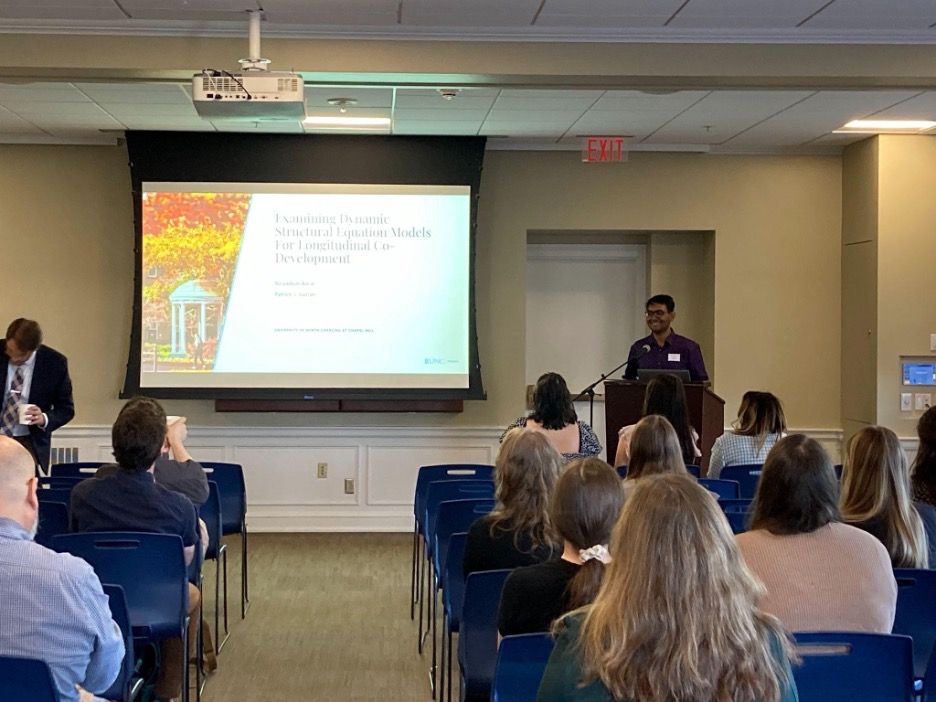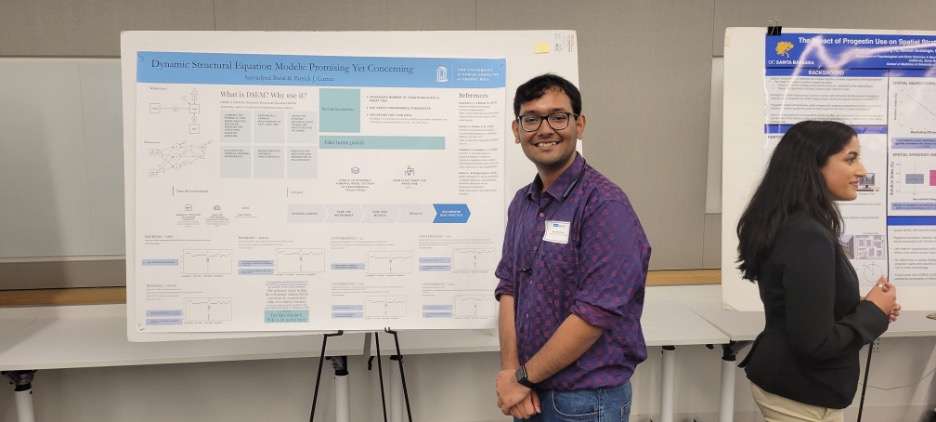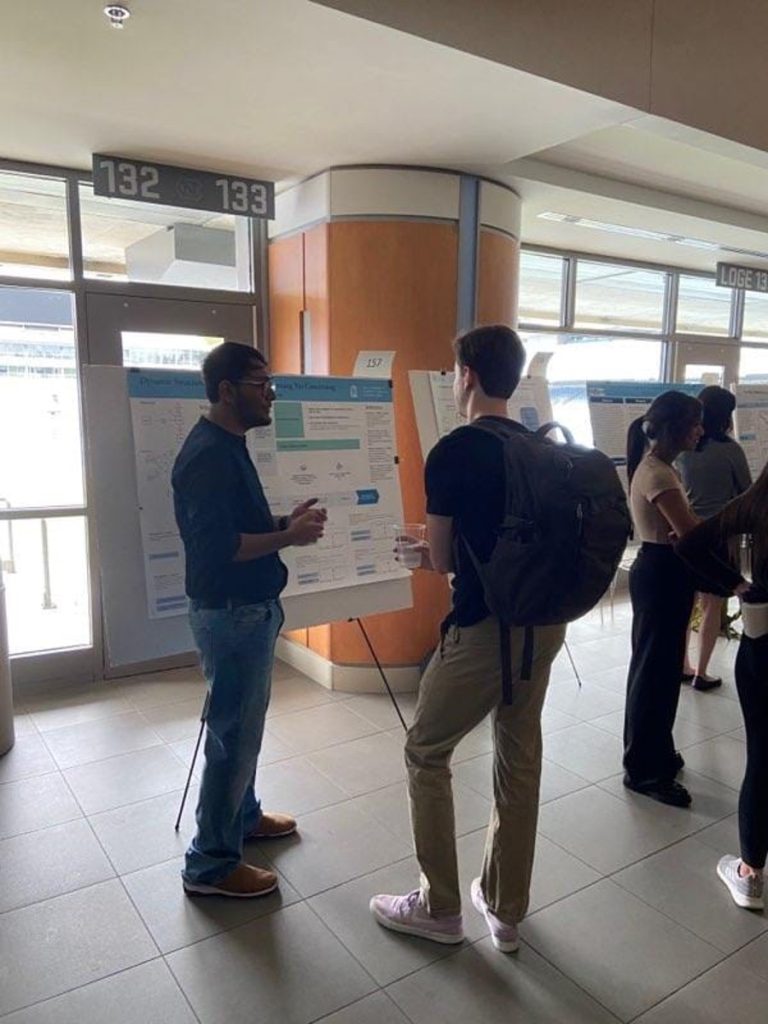Finding Research Opportunities at UNC
By Baral, a Peer Tutor
As I logged off from the Zoom meeting with my professor, I was smiling but I knew I was not getting the opportunity to work in his lab any time soon. In my heart, I felt dejected. Right after I said I had no prior research experience, the conversation moved away from working in his lab to finding other labs to work in. He did not say it to my face but I knew my lack of experience concerned him. I cannot blame him – would I want someone with no idea what they are doing helping me with my project? Probably not! However, everyone has to begin somewhere. No one is born with research experience. All the same, I was frustrated with the situation. I wanted to get involved in research, but I was struggling to get started!
Growing up in India, I knew I did not want to become an engineer or a doctor (two of the most sought-out jobs in my country). Being a researcher to add to the ocean of knowledge – now that was something that excited me. However, our high schools had no research component. We could solve incredibly difficult math and physics problems by memorizing equations and algorithms. But when it came to thinking outside the box to add something to the literature, I was at a loss because I had always been instructed to follow whatever had been done earlier. One cannot add to the literature if one does not question what has already been established. Regardless of my lack of training, I was determined to get into research labs when I got admitted to UNC, one of the premier research institutes in the world. Little did the naïve 17-year-old me know that my lack of research experience would become a big deal in the future.
My first step towards getting involved in research was getting to know my professors. I began my freshman year staying back at home in India, because I didn’t get a visa thanks to the travel restrictions of the pandemic. Coping with the uncertainty and the isolation was difficult. On top of that I was struggling with the time difference between America and India and trying to get accustomed to attending lectures over Zoom. Overall it was difficult to get to know my professors outside of the classroom with all the circumstances. In my sophomore year, with UNC coming back to a semblance of normalcy, I finally got the opportunity to talk to my professors about research. As you saw in the previous anecdote, my first Zoom meeting with a professor did not go well. Rather than dwelling on my disappointment, I chose to explore additional resources available on campus.
I heard of the Office of Undergraduate Research from my professor. Browsing their website, I realized that they were hosting a general information webinar in a few days. I RSVP-ed to the webinar immediately and began counting down the days. The day of the webinar arrived and I was thrilled. I recall sitting down with a cup of coffee and my notebook. Four pages of notes later, the webinar ended. I got a lot of information on research opportunities available on campus and on how to reach out to professors for research positions. The webinar was extremely helpful. That night I made a plan of action.
In the coming months I interacted a lot with my professors. I stayed back after classes, went to office hours, and read papers that my professors directed me towards. This helped me narrow my focus to cognitive psychology, specifically attention. Fortunately, my cognitive psychology professor had a research assistant position open in his lab. I applied to receive course credit for the position through an independent research course under him–PSYC 395. Thankfully, I was accepted and thus began my first research position.
In the spring semester of my sophomore year, I primarily assisted the graduate student in the lab. I learned neuroimaging techniques. As a part of my independent study, I wrote a literature review on predictive coding, which is considered to be a unifying theory of cortical function. I presented my work in front of the lab and wrote a 17-page review. At the same time, I got the opportunity to work as a research assistant at a social psychology lab. I was assisting another graduate student there. However in this lab I felt no motivation to assist in the research. The professor and the graduate students were perfectly good people but their research did not pique my interest. Eventually, I decided to quit my position in the social psychology lab and focus entirely on cognitive psychology. Through this experience I realized that research life will have many unknowns. Trusting my intuition and sticking with what I love working on the most are necessary in navigating the unknowns of academia.
Labs are not the only place one can go to for research experience. Many classes have an interesting research component to it. Being a Honors student, I was able to enroll in one such class. The class focused on quantitative psychology. We formed groups and figured out a research question after reading some journal articles. We made a questionnaire and collected data from UNC students. We used methods that we learned in class like exploratory factor analysis and presented our work in front of the class. By this point I was interested in quantitative methodology and decided to add a second major: statistics.
Academia is hard and sometimes unrewarding, so it is important to celebrate the wins when they come by. After five semesters of searching for research opportunities and then working hard leading my research projects, it was finally time to collect the rewards. The spring semester of my junior year was particularly rewarding from a research standpoint. I started an independent study with my quantitative psychology professor. I found some interesting results and with those results I applied to conferences. It was daunting at first, however with my professor’s guidance I was able to write an abstract that got me invitations to conferences at UVA and UCLA.
It was a ton of fun visiting UVA and UCLA. At UVA’s Reid Conference, I gave a research talk to a group of professors, graduate, and undergraduate students. At UCLA, I presented a poster on my work to a room full of the most accomplished people I have ever met in my life. Both the conferences were intimidating, I will not lie. However, the energy in the rooms was so comforting and accommodating that I never felt out of place. I spoke to many professors after the presentations. I learned to look at my research question through different perspectives. Overall it was an enriching experience and something I can see myself doing again and again in the future.
Presenting at UVA’s Research Conference
Presenting my poster at UCLA’s Research Conference
Presenting my poster at UNC’s Celebration of Undergraduate Research
I continued working in cognitive psychology and with my professor we developed a new paradigm to test hypotheses from the predictive coding theory. The Department of Psychology and Neuroscience awarded me the Lindquist Grant to help me fund my experiment. I am planning to write a Senior Honors thesis with my cognitive psychology professor. UNC has a wonderful research seminar organized by the Office of Undergraduate Research where undergrads present posters in the Blue Zone of the Kenan Stadium. I am looking forward to presenting there surrounded by my wonderful peers who have inspired me to do better.
UNC has a lot of resources to enable its undergraduates to pursue their research interests. Not all of them will lead to an independent project, a paper, or a conference presentation. I have been in labs that did not pique my interest. I have applied to labs and seen the email we all hate to see, “We regret to inform you…” I have realized that it is fine to close doors and say “No.” Professors and graduate students appreciate the honesty. Doing what one loves is possible in a place with such a plethora of possibilities. As my professor once said, “So much of life is just serendipity.” Believing in your abilities and being curious will shape your research experience at Carolina in a manner that suits you.




